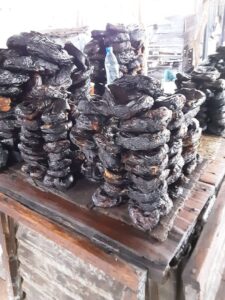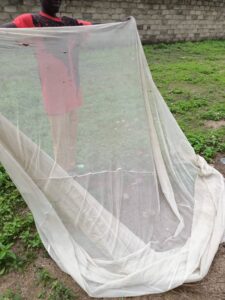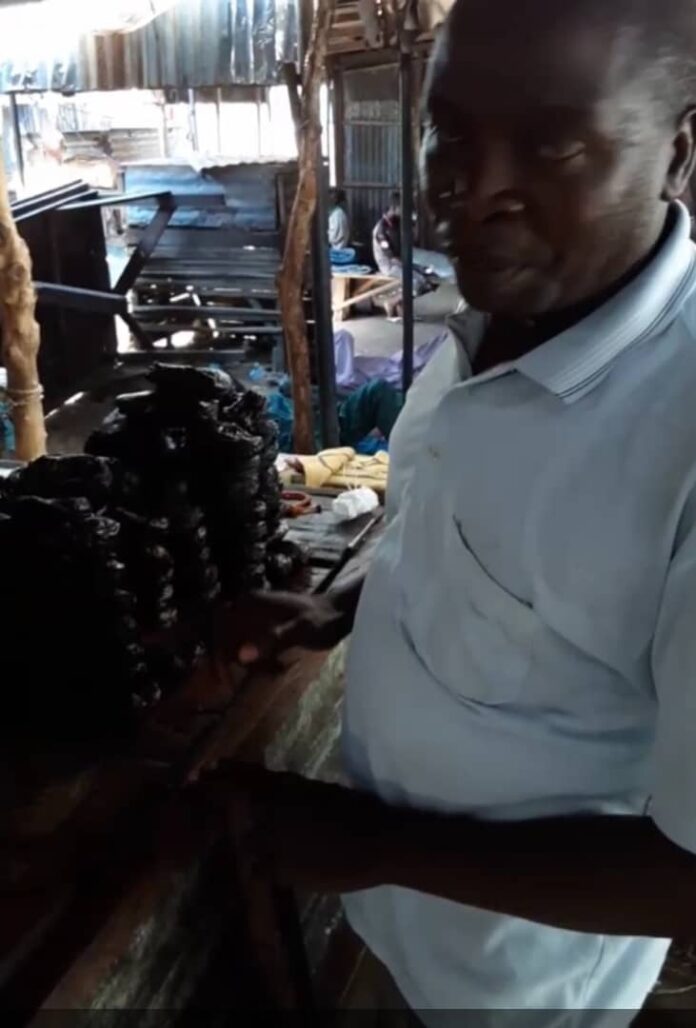Baga’s dwindling fish business
Story by Steven PEMBI
As much as most parts of Borno State connected to the Chad Basin are concerned and boast of some elements of fishing and commercialization linked to the fish trade, no location comes close to Baga.
Doron Baga, particularly, is notorious for its history as a productive, rich fishing ground which connects the fishing communities of north-eastern Nigeria to the rest of the country.
Although Baga has profited the most from its connection to the Chad Basin, it has found itself in the middle of a rotational power tussle and rotational ownership between the military and Boko Haram.
The fish cluster in Baga was so organized that the fatomas (fish dealers), transporters, fishermen etc., had strong, operational and vocal associations, thanks to the almost all-year flourish of the Chad Basin that flowed into the area, via the Doron Baga.
Naturally, just as it came with a lot of wealth across board, so did its crime rate, prostitution and shady dealings increased.
“Every kind of business was there.
“Tuesdays to Fridays were busy days for the fishermen, as they brought the fishes fresh, dried, smoked and traders had to decide which they wanted.
“Fish traders came from all parts of Nigeria, Chad, Niger and Cameroon. The truck drivers, who specialise in transporting just fish, were also there. Baga was never dull,” said Goni Umar, a fish trader.
Trouble came home to roost on April 16 and 17, 2013, Neptune Prime learnt when Boko Haram engaged the Nigerian military in fierce fighting. In the end, over 200 lives were lost, most of them, innocent. Over 4000 houses were burnt.
Many who treasured their lives above their businesses fled the area. Gradually, the business began to dwindle but fishing continued. Only issue was; no one to sell to. The news spread and fish traders stayed off the place. Businesses took some more hits.
It was while this fear remained that the Boko Haram terrorists waltzed in and took Baga. The result; if you were not loyal to them, you could not do business in the area. If you did, you could not move the fish to Maiduguri, because you would have to explain yourself to the Nigerian army at the check-point.
Many did not want to get caught in the middle, but few business people had their way. The business boomed over in Baga, now Boko Haram-controlled territory but the snag was fish was not coming into Maiduguri anymore. The supplies from places like Konduga and Ngala could not serve the rising demand.
Neptune Prime was scheduled to meet with Goni in Baga, but he could not make it, due to security concerns and restrictions by the military. We eventually caught up with him in Maiduguri. He has been trading fish for over 20 years.
“So, before the insurgency, we have people (fatoma) who bring the fish from Baga to Maiduguri. You could see the trailers loaded with all kinds of fish at the gate of the fish market, waiting for their goods to be off-loaded, while others are inside having their goods offloaded,” he explained.
“When I come from Baga, I have my supplier (who I and other traders have made all the arrangements with). The truck comes and the goods are offloaded into the shop, where I stock my fish (it is different from the place where the fish is sold).
“This was before the insurgency and everyone involved in the business was making some money, taking care of their needs. Daily, I was making about N20, 000 and, weekly, that came to N100, 000.

“But, when Boko Haram struck Baga, we fled. Everything about the business changed. No one could go there, because it became a battleground between the military and the insurgents.
“After some time, some people went back to fish there, using traditional powers. This was how we started getting fish again. But it was not like it used to be. Even after the military took the place back and escorted the fish-laden trucks back to Maiduguri from Baga, business has still not returned to normal. We spend a lot to bring the fish from Baga and this has made it very expensive. Even at that, these days I make between N3500 and N4000 and, weekly, between N20000 and N30000,” says Goni.
According to him, the fish sellers’ association has been very strong in these times and they have helped them stay in business.
This report is produced by Neptune Prime with support from the Wole Soyinka Centre for Investigative Journalism (WSCIJ) under the Collaborative Media Engagement for Development Inclusivity and Accountability project (CMEDIA) funded by the MacArthur Foundation.
Follow the Neptune Prime channel on WhatsApp:
Do you have breaking news, interview request, opinion, suggestion, or want your event covered? Email us at neptuneprime2233@gmail.com





